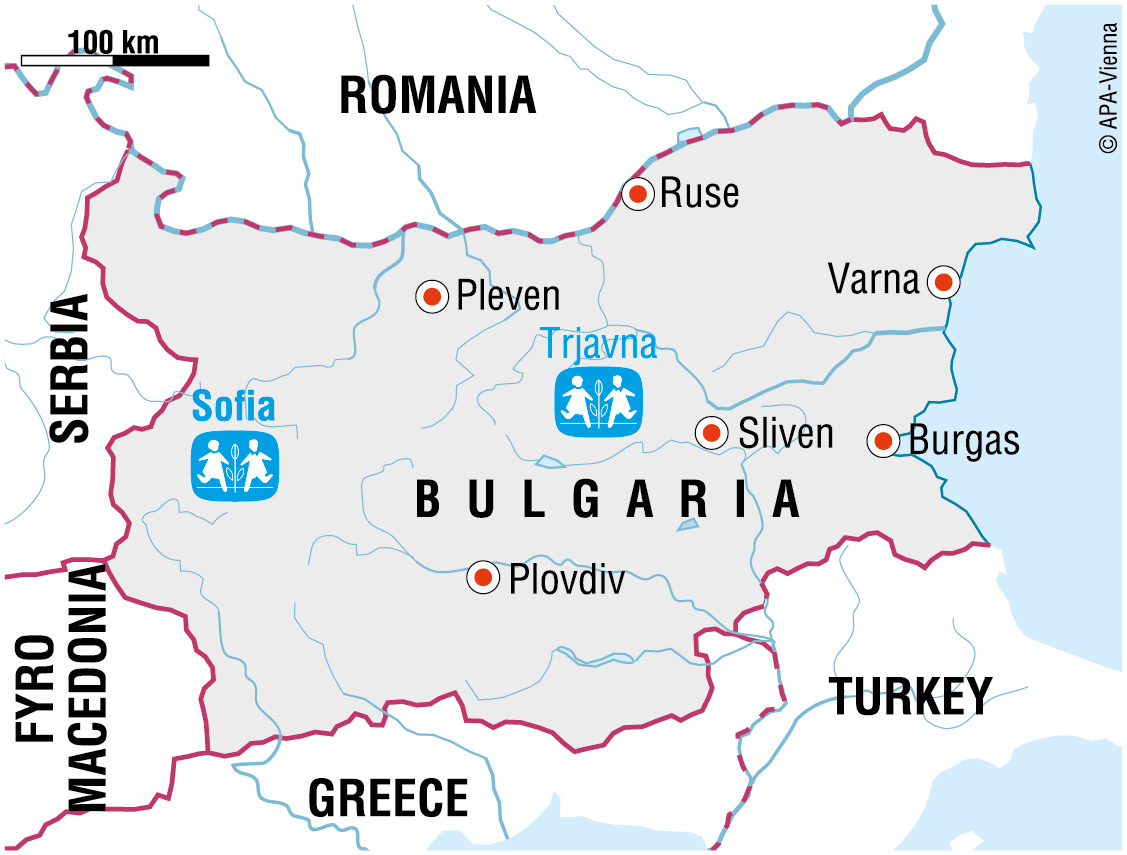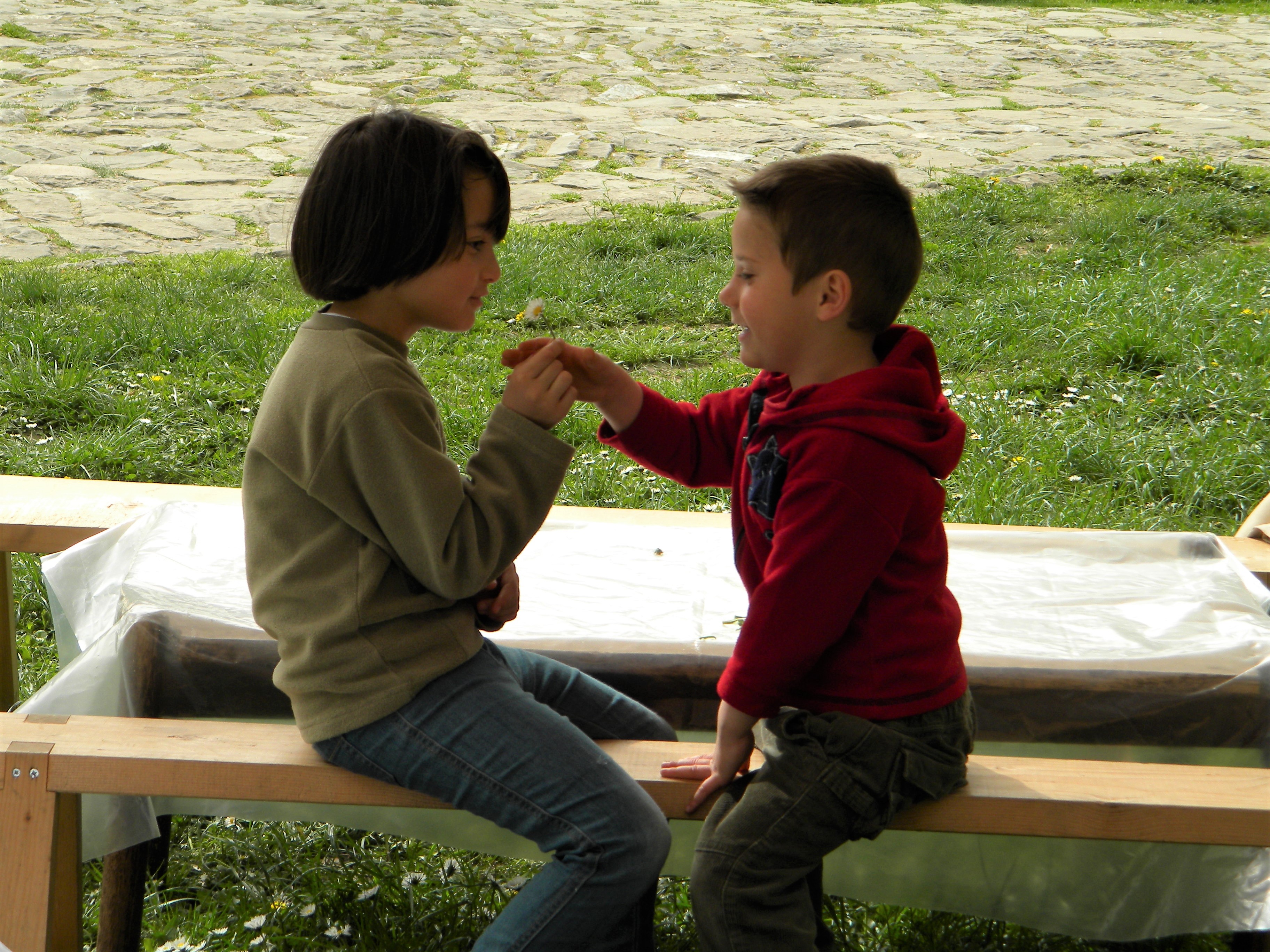
Vi er i Bulgaria
Bulgaria still faces many challenges
.jpg?width=800)
| SOS Children’s Villages cares for children who cannot live with their families (photo: SOS archives) |
There are approximately 7.1 million people living in Bulgaria. The capital, Sofia, is located in the west of the country and has more than 1.2 million inhabitants. Worryingly, a large number of people are leaving the country; it is projected that by 2050, less than 5.5 million will live on Bulgaria.
People are leaving due to the harsh social and economic conditions. Bulgaria’s transition to democracy in the early 1990s wasn’t easy. Although the situation has improved since then, the country continues to face uncertainty and serious challenges; these include long-term unemployment, low salaries, poverty, and crime and corruption. These all affect the lives of vulnerable families and their children – especially those living in rural areas.
One of the poorest countries within the EU
Young people, those over the age of 50, and those of Roma backgrounds find it particularly hard to find employment. The official unemployment rate is 6.1 per cent. But, given that Bulgaria has one of the lowest minimum monthly wages in the EU, even those who are working struggle to make ends meet.
The high levels of crime and corruption affect all levels of society. According to Transparency International, Bulgaria is the most corrupt state in the EU, and further measures are needed to improve the situation.
Bulgaria has one of the least developed health care systems in Europe, especially in rural areas. This is a troubling feature in a country with some of the poorest health indicators regarding infant mortality and a growing incidence of childhood diseases which include tuberculosis and cancer.
In spite of some progress, more needs to be done towards the integration of the Roma community. Many continue to live in impoverished communities on the margins of society.
Alarmingly high number of children living in poverty
Children in SOS Children’s Village Trjavna taking part in a dance lesson (photo: SOS archives)
Although Bulgaria signed the UN Convention on the Rights of the Child in 1991, it took over ten years before national legislation to improve the rights of children was approved. Since 2010, measures have been in place to reduce the number of children in institutional care and allow children to grow up in their own families or in family care such as that provided by SOS Children’s Villages.
SOS Children's Villages in Bulgaria
SOS Children’s Villages has been supporting vulnerable families and children in Bulgaria since 1990.
Strengthening families: We work with local communities and organisations to support children and their families so that the children can grow up within a caring family. We provide support so that children are well-nourished, can visit the doctor and go to school. Parents can attend training and counselling, and we help them find a job so that they can improve their living conditions. In 2016 we worked with nearly 600 children. As a result of our support, 95 per cent of the families we worked with have managed to stay together.
Care in families: When children can no longer live with their families, they can be cared for by SOS parents in SOS families or in small family homes. Some of the children live in foster families, where SOS Children`s Villages provides them with all the support they need. In some parts of the country, the families live integrated in the neighbourhoods, alongside other Bulgarian families. This ensures that children develop strong links with the local community.
Wherever possible we work closely with the children’s family of origin so that they can return to live with their families. Whenever this happens we work towards supporting them during the period of change and adaptation.
Support for young people: It is very hard for young people to become independent, due to the high unemployment rate and lack of opportunities. SOS Children’s Villages therefore provides care and support for young people. While they are attending further education or training, we help them build skills so that they can live independently.
Advocacy: SOS Children's Villages works closely with the government and other organisations to improve the lives of children and offer them greater protection.
Emergency programme for refugee unaccompanied children: Working with partners, we also care for unaccompanied refugee and migrant children. As part of this, we make sure that they attend school and learn new skills.
Website of SOS Children's Villages Bulgaria
(available in English and Bulgarian)